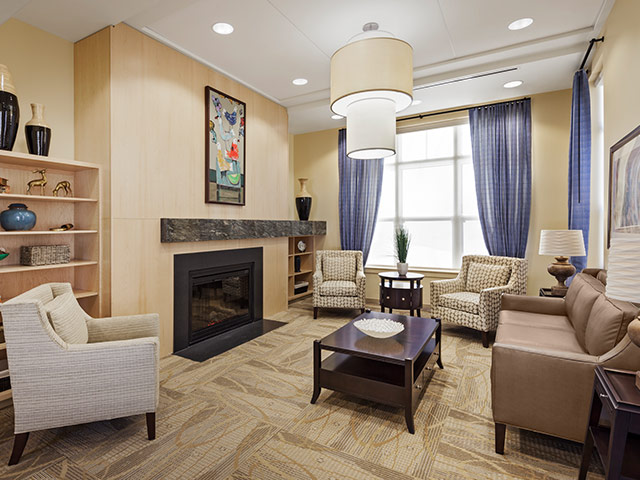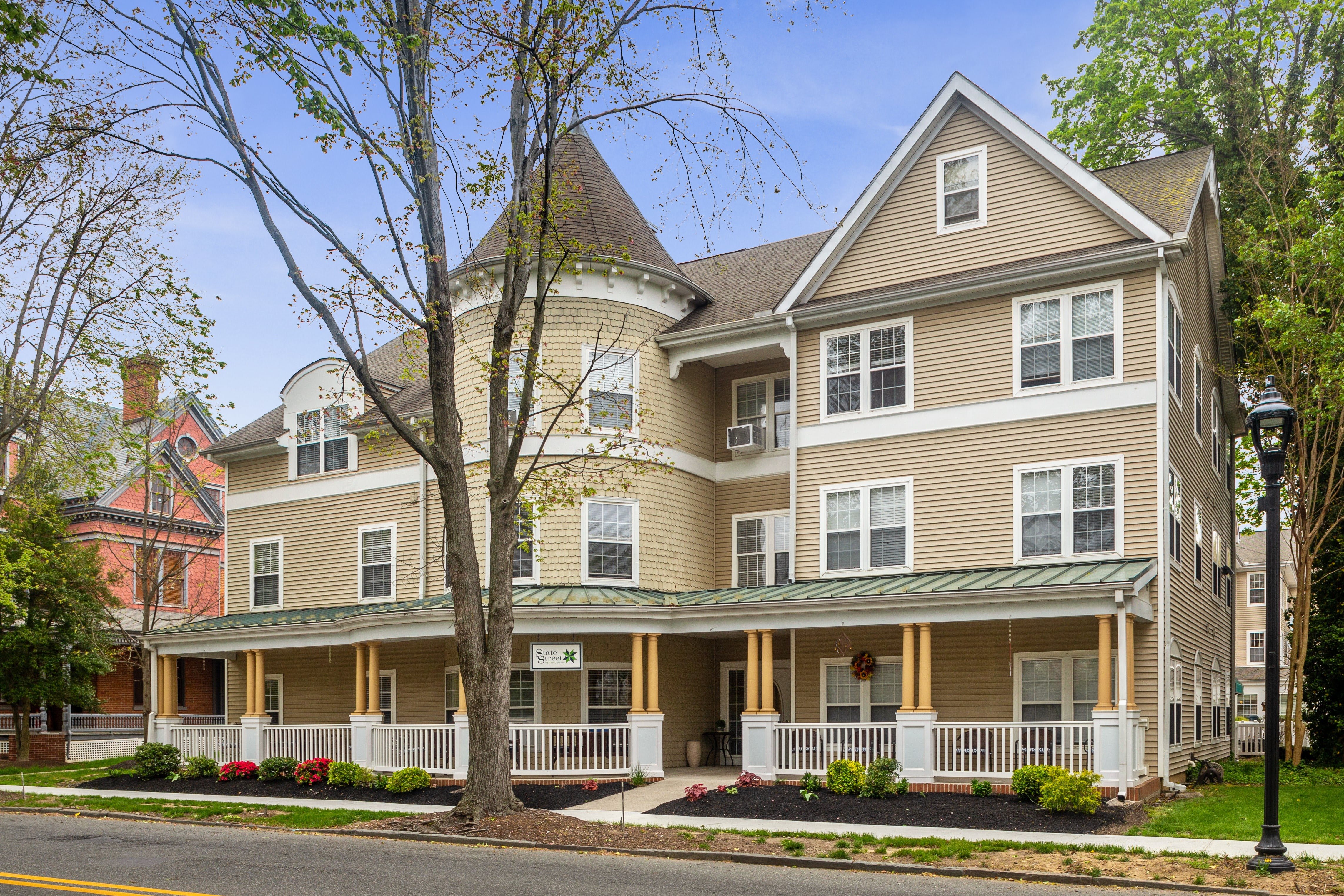Personalized Memory Care for Seniors in a Supportive Environment
Personalized Memory Care for Seniors in a Supportive Environment
Blog Article
All About Memory Care Services: Why Small Memory Care Houses Are a Fantastic Choice
Memory treatment solutions play a necessary role in sustaining individuals with Alzheimer's and dementia. Little memory care homes stick out for their personalized method and intimate setting. With lower staff-to-resident proportions, these homes promote more powerful connections and tailored care. Locals gain from boosted social communications and a risk-free atmosphere. As family members discover choices, understanding the distinct advantages of tiny memory care homes becomes crucial. What elements should be thought about when picking the appropriate home?
Recognizing Memory Treatment Provider
While lots of might know with general elderly care choices, recognizing memory treatment services is important for families dealing with the difficulties of cognitive decrease. Memory care particularly deals with people with problems such as Alzheimer's illness and various other forms of dementia. These solutions offer a structured environment that concentrates on boosting the quality of life for citizens via specialized treatment and support.Memory treatment centers are made to guarantee safety and protection, frequently including protected atmospheres to prevent wandering. Trained personnel participants are available all the time to help with everyday activities, medicine management, and individual treatment. Furthermore, memory treatment programs frequently consist of cognitive excitement activities, customized to involve citizens and promote psychological wellness. Households can gain from comprehending these services, as they allow educated decisions regarding their enjoyed ones' care, making certain that their details requirements and choices are resolved in a encouraging and compassionate way.
The Benefits of Little Memory Care Residences
Little memory treatment homes provide distinct benefits that can substantially improve the quality of life for locals with cognitive disabilities. One significant benefit is the intimate environment, which allows for individualized interactions amongst team and residents. This smaller sized setup promotes significant partnerships, decreasing sensations of seclusion and anxiety commonly experienced by individuals with memory issues.Additionally, the reduced staff-to-resident proportion in tiny memory care homes enables caretakers to offer more mindful supervision and assistance. This approach not just improves safety and security yet also advertises a complacency for the residents.Moreover, small memory treatment homes can adapt promptly to the one-of-a-kind requirements and choices of each local, enabling a much more homey ambience. Such an atmosphere can encourage social involvement and participation in tasks, eventually enhancing the day-to-day experiences of those dealing with cognitive impairments.
Personalized Treatment Program for Citizens
Personalized care strategies are vital in memory treatment homes, as they provide to the one-of-a-kind needs and preferences of each resident. These plans begin with detailed analyses performed by experienced specialists, that review cognitive abilities, clinical background, and personal interests. This customized method guarantees that care is not just effective however additionally considerate of each person's self-respect and autonomy.Moreover, individualized treatment plans are adaptable, enabling modifications as homeowners' requirements evolve with time. This adaptability promotes a complacency and familiarity, which is crucial for individuals dealing with memory obstacles. Caretakers are educated to implement these plans regularly, supplying support that lines up with the citizens' regimens and preferences.Ultimately, personalized care strategies boost the lifestyle for residents by promoting interaction, wellness, and self-reliance, making them a basic facet of memory treatment solutions in tiny memory treatment homes.
Producing a Home-Like Setting
Creating a home-like setting is critical for promoting comfort and familiarity in memory care setups, as it considerably impacts locals' psychological wellness. Tiny memory care homes often focus on personalized touches, such as cozy color schemes, household photos, and acquainted furniture setups, which assist residents really feel much more at simplicity. Integrating components similar to a traditional home, like comfy living areas and public areas, motivates a feeling of belonging.Moreover, utilizing all-natural light and outdoor areas can boost the atmosphere, promoting leisure and tranquility. Personnel play a considerable function in maintaining this atmosphere by engaging with citizens in a thoughtful manner, treating them like family members. Routine activities, such as food preparation or gardening, can likewise add to a home-like feeling, providing opportunities for locals to take part in purposeful experiences. In general, producing a supporting setting supports cognitive function and emotional stability, making it an essential aspect of memory care solutions.
Improved Social Communication and Community
Enhanced social interaction and community are necessary components of memory care services. By cultivating personalized social interaction and producing a family-like atmosphere, these services advertise purposeful connections among citizens. Team tasks and occasions better urge engagement, aiding individuals feel much more included and supported.
Personalized Social Interaction
While social communication is crucial for overall well-being, numerous individuals with memory impairments frequently struggle to involve meaningfully with others. Individualized social engagement in memory treatment homes addresses this obstacle by producing tailored tasks that provide to residents' unique rate of interests and capabilities. By concentrating on individual preferences, caretakers can promote connections that reverberate deeply with each individual. Activities such as art therapy, songs sessions, and guided conversations promote cognitive stimulation and emotional expression. Additionally, small group setups motivate camaraderie and permit for more intimate communications, improving feelings of belonging. This method not only battles feelings of isolation yet likewise empowers homeowners to preserve a sense of identity, ultimately adding to improved psychological health and top quality of life.
Family-like Environment
In a memory treatment setting, promoting a family-like atmosphere greatly improves social communication and builds a feeling of neighborhood amongst locals. Smaller sized memory treatment homes usually prioritize intimate atmospheres, allowing homeowners to develop closer links with each other and team member. This nurturing environment advertises trust fund, which is essential for individuals with memory problems. Homeowners are much more most likely to involve in discussions and share experiences, creating an encouraging network that minimizes feelings of isolation. The knowledge of shared spaces and routines adds to a sense of belonging, additionally urging social interaction (personalized memory care). In such setups, emotional bonds grow, causing boosted total health and a higher quality of life for locals as they navigate their everyday experiences with each other
Team Activities and Occasions

Safety And Security and Protection Functions in Little Houses
Numerous small homes made for memory care integrate necessary safety and security and protection functions to assure the well-being of locals. These homes frequently make use of safe entrance and leave points to prevent straying, a typical problem among individuals with memory disabilities. In addition, surveillance systems and alarm system devices boost tracking, making certain that team can promptly react to any kind of uncommon activities.Interior layouts are tailored for safety, with reduced threats such as sharp corners and clutter-free paths. Handrails and non-slip floor covering are usually mounted to minimize the danger of falls. Employee are educated in emergency procedures, guaranteeing they are planned for various situations.Moreover, individualized treatment strategies might include evaluation of private safety and security demands, giving customized solutions for each and every homeowner. Overall, these security and safety attributes create a nurturing setting where locals can grow while preserving their self-respect and self-reliance.
Exactly how to Select the Right Memory Care Home
How can households assure they select one of the most ideal memory care home for their enjoyed ones? The choice requires cautious consideration of a number of aspects. First, family members should evaluate the facility's team qualifications and training, making sure that caregivers are experienced in managing memory-related conditions. Next, it's vital to assess the home's environment, concentrating on safety and security features and whether it cultivates a sense of area and belonging. Seeing the facility can offer understanding into day-to-day tasks and the social ambience, which are important for psychological excitement and emotional well-being. In addition, families should inquire concerning the care strategies used, guaranteeing they are tailored to private needs. Lastly, considering the home's place and access for family members check outs can add to a smoother change. By attending to these aspects, family members can make an educated decision that prioritizes their loved one's comfort and quality of life in a memory treatment setting.
Often Asked Questions
What Credentials Should Personnel Members in Memory Care Homes Have?
Employee in memory treatment homes ought to have pertinent accreditations, experience in mental deterioration care, solid communication skills, and concern. Ongoing training in behavior management and restorative treatments enhances their capability to sustain locals properly.
Just How Do Memory Treatment Services Differ From Traditional Assisted Living?
Memory treatment services focus especially on people with memory problems, offering specialized assistance and structured settings. In comparison, conventional assisted living provides basic help with day-to-day activities, doing not have the tailored technique necessary for those with cognitive challenges.
What Types of Tasks Are Supplied in Memory Treatment Homes?
Memory care homes generally offer a range of tasks created to engage citizens. Common choices include art therapy, music sessions, cognitive games, exercises, horticulture, and get-togethers, all targeted at enhancing wellness and cognitive function.
Can Locals Bring Their Own Belongings to Memory Care Residences?
Locals can normally bring their very own items to memory treatment homes, permitting them to individualize their living space - personalized memory care. This practice helps create an acquainted environment, promoting comfort and a sense of identification for the individuals

Just How Are Family Members Associated With the Care Refine?
Household participants play an essential role in the care process, frequently getting involved in decision-making, participating in care conferences, and providing psychological support. Their involvement fosters a collective atmosphere, boosting the resident's general health and quality of life. While numerous may be familiar with basic elderly care you can try here options, understanding memory treatment solutions is necessary for family members facing the challenges of cognitive decrease. These solutions offer an organized environment that focuses on enhancing the quality of life for locals with specialized treatment and support.Memory treatment centers are designed to assure security and security, usually including secured settings to stop wandering. Customized care strategies are important in memory treatment homes, as they cater to the unique requirements and preferences of each homeowner. Personnel participants in memory treatment homes should have appropriate certifications, experience check in mental deterioration care, solid interaction abilities, and concern. Memory care services concentrate particularly on individuals with memory impairments, providing specialized assistance and organized settings.
Report this page